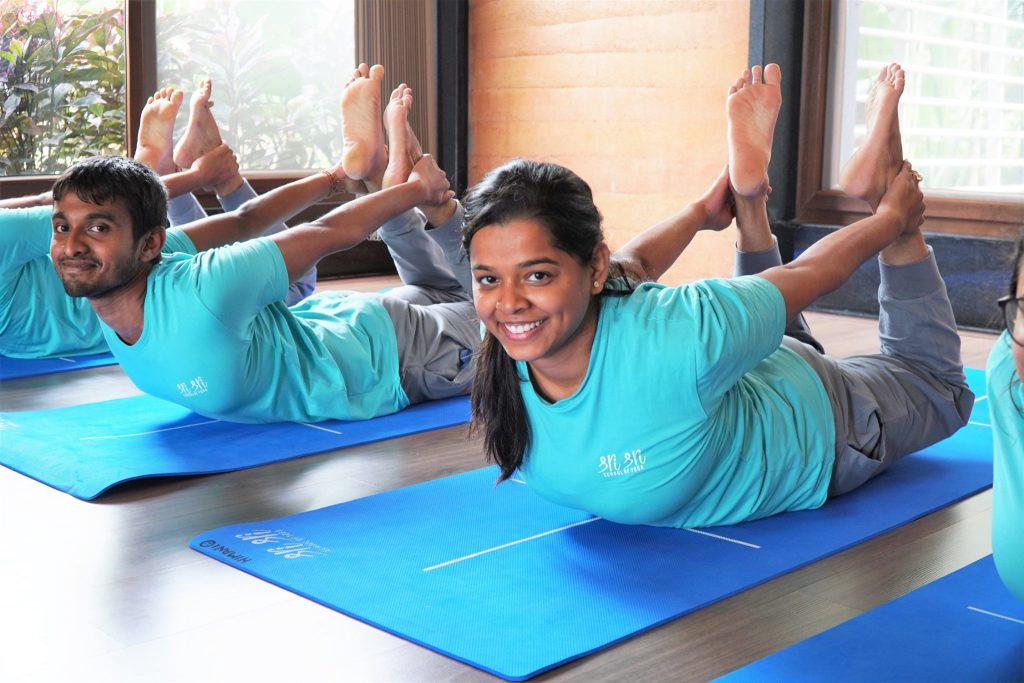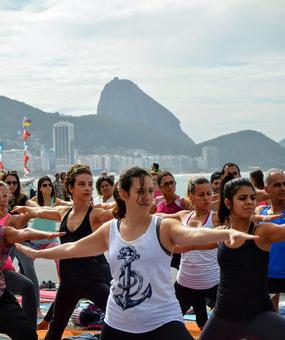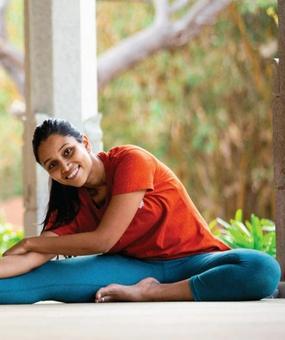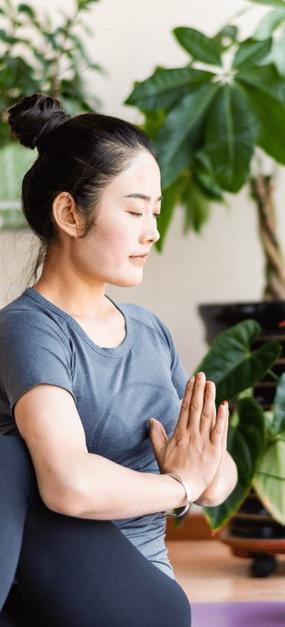Exploring the Depths of Yoga Philosophy and Spirituality
Ah! I am not flexible enough for yoga; I cannot imagine touching my toes… is the most common reaction when people encounter yoga. Twisted bodies and painfully stretched limbs are the stereotypical image of a yoga class in our minds. Do you really need a flexible body for yoga? Is yoga all about asanas? Is a toned body the aim or oblivion on the path of yoga? Let us find out if yoga is confined to the mat or if it has realms beyond the body.
The Myth That Yoga is Only Asana
A healthy body is at ease, and when there is a lack of ease, it is dis-ease. What is the actual cause of disease, and does it all start in the body? We take a pause here to shift our focus from the body to the mind. An individual has over 50,000 thoughts in a day, and one finds oneself attached to most of them. This is referred to as the monkey mind or fluctuations of the mind. Such conflicts prolonged over time hamper the vital functions of the body like digestion, blood circulation, secretion of hormones, etc.
Types of Yoga
Patanjali Yoga Sutra is widely acknowledged as the classic text on yoga and the authentic narrator of yogic philosophy and practice. Surprisingly, only three of the 196 sutras mention asanas, while the remaining text discusses other components of yoga-like breathing, meditation, conduct, and more. Many people identify yoga only with asanas, but physical postures are just one of the many tools on the path of yoga.
Yoga Philosophy
One of the definitions of Yoga, as described by Maharshi Patanjali in the authoritative text, is – Yoga Chitta Vritti Nirodha – “Yoga is stilling the mind waves or restricting the fluctuations of consciousness.” By managing the mind and escaping the emotional roller coaster, we suffer less, and this, according to Patanjali, is Yoga. Apart from defining Yoga, Patanjali outlines an eightfold path called Ashtanga, which translates to “eight limbs” comprising ethical principles for leading a purposeful life with self-discipline.
Yoga and Your Life
When people talk about “yoga,” they usually mean yoga poses or asanas. But yoga is more than just physical exercise. In the yogic tradition, asanas are not given much importance. However, in modern times, asanas have become the main focus. Asanas are only one way of experiencing ‘Yoga’, i.e. the union of Breath, Mind, and Spirit. The other forms of experiencing yoga include Gyana yoga, Karma Yoga, Bhakti yoga, etc. Yoga teaches one to experience oneness within, and all these modes lead to the same experience. ‘Sthiram Sukhanam Asanam’s posture should be steady and comfortable. Only in this state can one experience oneness, lightness, & bliss. In this state, one can go deeper into the asana. All the advanced yogis have achieved perfection in their postures, which we now term ‘Advanced Asanas’ after having experienced this inner tranquillity even in the basic asana.

At Sri Sri School of Yoga, we believe that people should start their journey with the body but then explore their inner selves. Sri Sri Yoga is a holistic and traditional approach to yoga taught by the Art of Living Foundation. What makes us special is our emphasis on combining ancient yogic wisdom with modern practices, creating a well-rounded experience that fosters physical, mental, and emotional well-being. We are known for our accessible techniques, guided by expert instructors, making yoga beneficial and enjoyable for people of all levels and backgrounds. Another evidence of Yogic philosophy embracing the mind over the body is the Bhagavad Gita where Krishna tells Arjuna – “Yoga is skill in action.” For many of us who practice yoga asanas, this is relatable to the experience of bringing awareness while practicing physical postures. While connecting the mind with the experience of the body is a challenging accomplishment, it is just the beginning. To walk the path of yoga and navigate gracefully through life, we must learn to be present in the moment like a child. Children greet every moment with enthusiasm and joy, as their consciousness is devoid of the stockpile of impressions and patterns formed from past experiences.
Ancient Practices for Modern Life
Detaching the consciousness from what has gone by and what has not arrived yet equips one to move through thoughts and emotions skillfully. Rising above the clouds of attachments, desires, and preconceived notions that surface and prevent us from realizing our true potential is the real skill in action. Are we practicing yoga in its true sense today? The popular practice of postures is not the aim to thrive for; it is the harmony between the inner and outer layers of our existence that we must reach. Yoga beyond the mat is about achieving spiritual enlightenment and not just physical fitness. This nourishing science is prescribed for its add-ons of physical fitness and wellness. This is as sad and ignorant as savoring the skin of a banana!
Like a flower bud, human life has the potential to blossom fully.
Gurudev Sri Sri Ravi Shankar
Blossoming of human potential to fullness is yoga.
Benefits of Yoga
The goal of yoga is to find equanimity and contentment and make peace with ourselves and others. A gentle reminder of the authentic purpose of this self-empowering way of life couldn’t be more relevant in the challenging times that we thrive in today. Yoga is the science of right living to be incorporated in all areas of life—physical, psychological, and spiritual. It is an art of discovering the essence of our existence.
Conclusion
Yoga is not confined to the mat; it extends to every aspect of life. Understanding and practicing yoga beyond asanas can lead to a more profound experience of life, enhanced well-being, and a deeper spiritual connection. Whether through understanding yoga philosophy, practicing different types of yoga, or incorporating ancient practices into modern life, yoga offers a holistic path to a balanced and fulfilling life.








